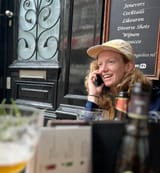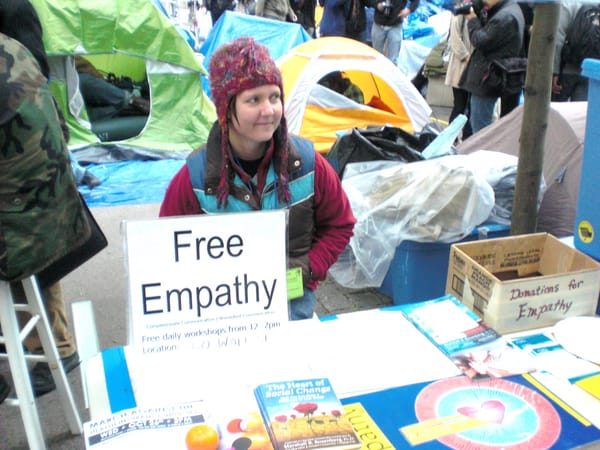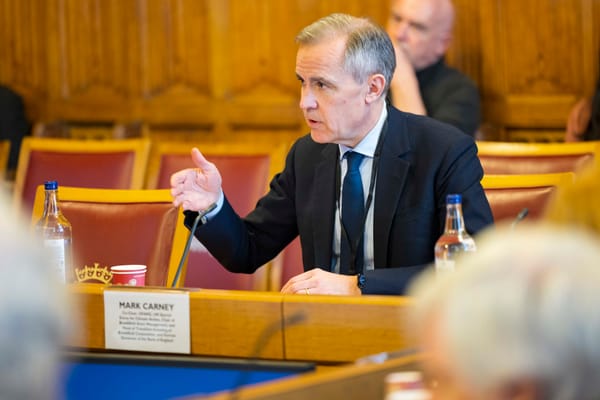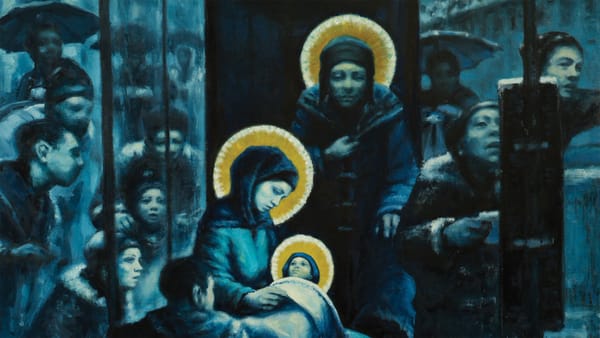The Lionesses. Women’s sport makes Britain brilliant
The Euros winners show what it means to love your country.
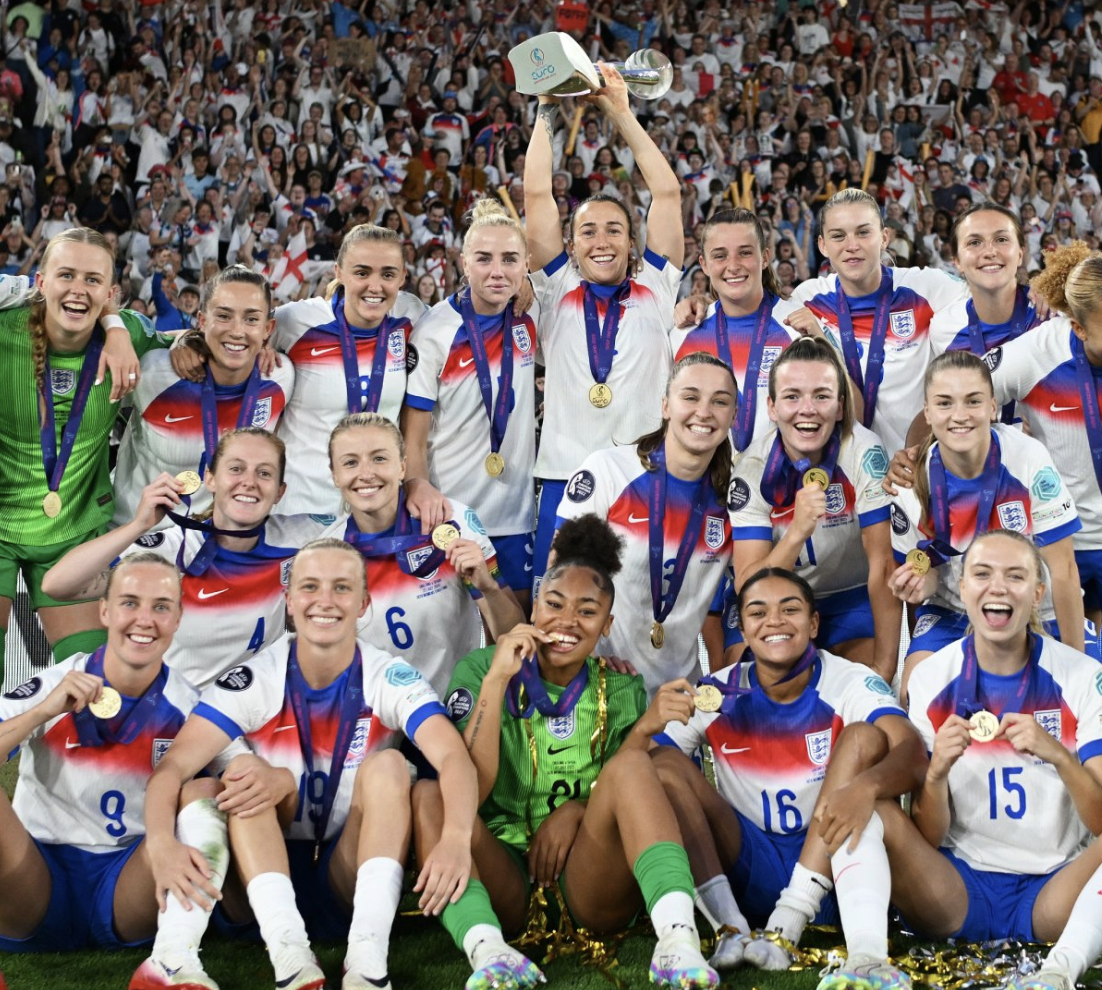
There’s nothing like live sport to show the many hills upon which Brits will go to die on. Football, of course, is our Mount Everest, and this summer, it’s been women’s football raising the flag, leading the charge, and reminding us who the nation really is.
Not only have we seen, once again, that England can actually win at football, we’ve seen something bigger: that even amidst the chaos of our newsfeeds and the deafening geopolitical chaos, moments like this cut through and show us how bloody brilliant this country can be. The Lionesses aren’t just ballers – they’re a mirror, showing us an England worth backing, worth building, worth celebrating. A version of Englishness bursting with pride, power, and a fully unapologetic attitude, if only it’s given the space to shine.
Of course, some (or many, as is the case when women do sport) weren’t happy.
Football-minded men!
A man called Graham went viral last week for speaking for all “football minded men” when he told LBC host Henry Riley he was sick of women’s football being ‘rammed down our throats’. Women, Graham explained, shouldn’t be “in the men’s game”, suggesting he was alright with us playing, but that we should have our “own channel” so that hard working blokes like him can blissfully enjoy a bit of tele on a Sunday afternoon without having women’s talent (and voices) rubbed in his face.
Graham and those like him apparently haven’t clocked that many people in England would actually quite like a respite from the men’s bloated and fossil-fuel-tainted Premier League football being ‘rammed down our throats’ nine months of the year, but still, we get on with it. We change the channel. We carry on.
As someone who was once a female athlete, I’m relieved to say that I don’t actually believe Graham and people like him represent England or the UK anymore. Their complaints feel like a last ditch attempt to cling on to a world that is, thankfully, not as dominant as social and mainstream media might have us believe.
Women not welcome?
When I was growing up playing sports, sexism wasn’t a few fringe nutters on the radio that most would roll their eyes at – it was the norm. I grew up playing ice hockey (yes, a weird one for the UK, I know), due to a combination of living near to one of the few ice rinks in England and being indoctrinated from an early age by movies centring American sports.
In my club it was entirely normalised for girls to be held back, ridiculed or ignored, and, by many coaches, actively encouraged not to play at all. We were barely tolerated. Women were not welcome, end of. The logic for this was as idiotic and nonsensical as Graham’s is today. One particular coach I had when I was 12 would proudly chide regularly “if you can’t piss over the boards [the very tall plexiglass border around the edge of the rink] then you shouldn’t be playing at all”.
Another chunk of the glass ceiling
Flash forward twenty years – packed pub, pint in hand, chips going cold, and the Lionesses lifting their second Euros trophy on the big screen. My mate’s two teenage daughters are grinning like it’s Christmas and a Chapell Roan gig rolled into one. And yeah, for a minute it felt like another chunk of the glass ceiling fell away.
Of course I was buzzing that women’s sport was getting its just deserts – loud, proud and celebrated over lager and laughter. But it was more than that.
In a country that so often feels like it’s eating itself alive, this was one of those moments that made me love what English – and British – culture can be at its absolute best.
'Proper English'
Throughout the tournament the Lionesses flew the flag for what they called ‘Proper English’, a mantra they say makes up who they are as a national team, a mixture of grit, graft and magic, from passing with purpose, to digging deep when it matters and showing up for each other. To me it shows something bigger: the kind of Englishness that’s bold, cheeky, scrappy, bursting with colour and bloody good fun. It’s a lion-hearted spirit with fake nails, an imperfect perfection, an Englishness we can all aspire to.
Because ‘Proper English’ isn’t about putting people into boxes or deciding who gets to be English and who doesn’t. It’s a reimagining of our national identity, one that recognises the trickster culture that makes us both the funniest and scrappiest people in the world, a spirit that takes the piss out of ourselves on the one hand while putting the middle finger up to fascism with the other.
‘Proper English’ is a feeling, a vibe, that means we’ll rise from the ashes of the past into the future wearing clothes from the day before after being ‘out out’ all night. Rather than clinging to narrow definitions of our heritage, it embraces everything from a cuppa and a Coronation Street rerun, to Stormzy and old school rave.
It’s the spirit of a Sunday roast shared across generations, a kick-about after afternoon prayer, the energy of Glastonbury at 4am. Proper English is the Beatles and the Spice Girls, Grime and Garage, the NHS and a cheeky pint, lesbians and Scouse brows, Eastenders and Love Island. It’s queuing politely and chanting ‘You’ll never walk alone’ with your mates on the long walk home. It’s reggae beats on every corner in Brixton and dancing round the maypole. It’s black, brown, white, queer, neurodivergent, working-class, and not.
By threading together the post-war resilience of a stiff upper lip, to gassed up vibes of the 21st century, and everything in between, into one national narrative, the Lionesses remind us that being ‘proper English’ is more than just Queen and country. It’s fierce courage and unity, belonging and knowing that we can be better tomorrow than we are today.
‘Proper English’ resonates with the story that we’ve been championing, which says: the fate of Britain is in our hands and that we can – and will – make a better way to live.
Who do we want to be?
The deeper we sink into the multifaceted intersecting shitshow of the 21st century – the noise, the division, the endless doomscrolling – the closer we come to facing the real question:
Who are we and who do we want to be? Not just as a country, but as a people?
On women’s success, voices like Graham’s can still ring loud; not because they speak for most of us, but because there’s still this sense of entitlement for some that the only way to be English is their way: sexist, boring, exclusive.
On these deeper questions – who are we and who do we want to be, not just as a country, but as a people? – similarly outdated, prejudiced voices – Farage, Tommy Robinson, Douglas Murray – are still too loud, because there’s nothing to compete with them. There’s a gaping black hole where a better, kinder, fairer vision of our future should be. Politics has felt so totally bereft of hope that we’ve started to believe that the loudest voices speak for the majority, and that that majority doesn’t want to live in a world where there’s enough space for the proper Englishness of women’s football.
They think it's all over...
Well, sorry Graham, Nigel, and Tommy, if you think it’s all over – it is now, for you.
Half a million people have signed up to join a new, nameless political party in the past week. Regardless of where you stand on that party, it couldn’t show more clearly how desperate people in are for change. And not for the change Reform are offering; something else, something not yet defined, a feeling that, like ‘Proper English’ you can’t always put your finger on. But if you know, you just know.
The Lionesses, and the unapologetic slay of ‘Proper English’, remind us what this country can be, and maybe what, deep down we remember, it already is. These aren’t just football matches; they’re cultural landmarks, rituals of public encounter, that show us we can’t do this alone. That we need each other. They’re where different lives, dialects, colours, stories, and dreams make up one mighty Peter Blake piece. These are the moments that stitch us together when everything else is tearing at the seams. The Lionesses aren’t telling the story of taking England back – they’re showing us what it means to take it forward.
If you’ve been inspired by the Lionesses, maybe it’s time to go and find your tribe and do something to make your neighbourhood a bit more brilliant? Volunteer, speak out for Palestine, or maybe set up a Public Living Room.
Elsewhere in Absurdity...
Goodbye July, you were pretty damn climate-collapsy, reaching 35.8°C in Faversham, Kent. Meanwhile, Yvette Cooper and the Labour government fumbled along with their appeasement of genocide, which may now be legally undone. Our dear friend Brian Eno launched Together for Palestine, which will take place at Wembley Arena on 17th September – tickets available very soon. As for our crew...
- Charlie went to Norfolk to hatch plans with Hard Artists to help take the Fête of Britain the length and breadth of the country. He’s also been busy helping Hey! Festival get ready for its first headline gig at Doncaster’s ArtBomb in August.
- Maddy and Daze, along with our friend, the musician and organiser Genevieve Dawson, were at Latitude Festival with the Fête of Britain and Climate Live to talk about British identity.
- Sophie is at Wilderness Festival with the Fête of Britain, Good Neighbours and the Census of Britain, asking people the same question Alanna has above: who do we want to be, not only as a country but as a people?
- And Clare is at Green Gathering talking with friends on a panel about where now and what next for the climate and environmental movements.

